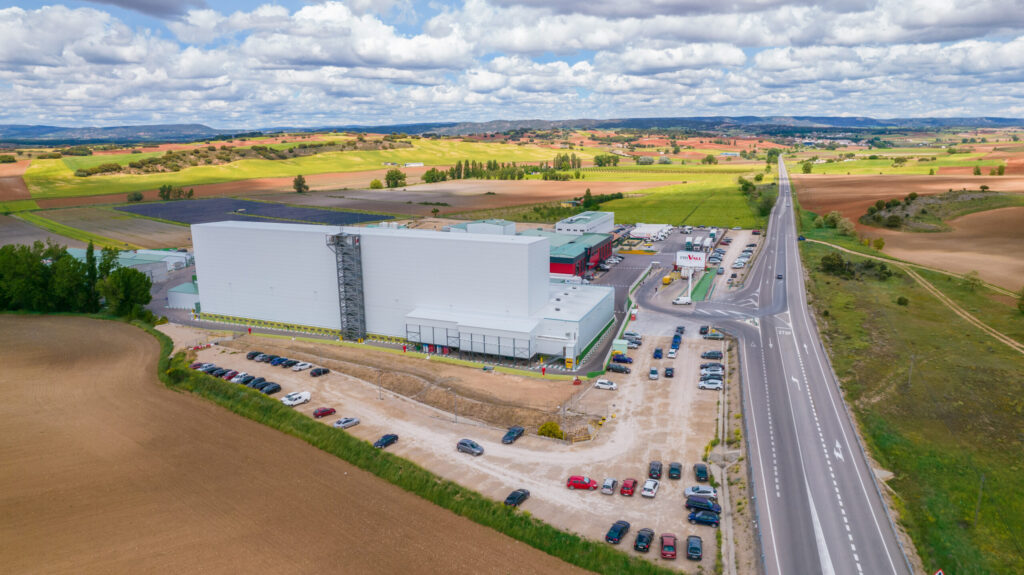Vall Companys Group maintains its commitment to sustainability and has already achieved its first results since it promoted the PENTA Program three years ago. The first Spanish agri-food group has managed to reduce its scope 1 and 2 CO2 emissions by 12.5%, which are the direct and indirect emissions produced by the Group itself, from 2020 to 2023.

Furthermore, regarding the reduction of scope 3 greenhouse gas emissions; The agri-food Group has managed to reduce its emissions from the meat value chain by 22%. Specifically, taking into account the tons of CO2 for the tons of meat produced.
This progress has been possible thanks to the promotion of its Penta Program – its strategic sustainability plan with a horizon of 2030 and named for its five axes of action. The program is a parameterized path year after year. With this, the Group aspires to truly and effectively achieve maximum sustainability in different areas of action aligned with the Sustainable Development Goals established by the United Nations.
Reduction of emissions and water use
The first axis of the Penta Program is the one that tries to reduce the environmental impact and promote circularity, with marked objectives of reducing greenhouse gases (GHG scope 1 and scope 2) of 35% until 2030.
In this sense, one of the most notable actions has been the implementation of more than 30 renewable energy installations in the Group’s plants. To date, 11.9 million euros have been invested to achieve a total installed power of 27.54MW.
All in all, the Vall Companys Group is the first Spanish company in the food sector to obtain approval of its emissions reduction targets by the Science Based Targets initiative (SBTi). SBTi analyzes that the sustainability objectives set are rigorous, can be met and are even intensified if necessary. With the validation of the Penta program by SBTi; It is concluded that the Group’s business activity is consistent with the goals established in the Paris Agreements to avoid a 1.5ºC increase in the planet’s temperature.
Ethical and responsible management
Another line of action is ethical and responsible management for sustainability over time and in the environment. The Group’s commitment to 20230 is to have 100% responsible soy suppliers and 100% sustainable suppliers, currently at 85.9% and 58.8%, respectively.
In this sense, the Vall Companys Group was the first Spanish operator in the food sector to support responsible soy production by obtaining Round Table on Responsible Soy Association (RTRS) credits.
The Group also became the first Spanish firm in the agricultural and meat sector to adhere to the Code of conduct on responsible food business and marketing practices promoted by the European Union, which aims to reduce the environmental footprint in the food sector, and thus accelerate the sustainable transition of the entire food industry value chain.
Qualitative growth: circular economy
Beyond the Penta program and its objectives; The agri-food Group is decisively betting on the circular economy as a new growth strategy. As an example of circular economy projects recently launched is the joint-venture between ICP, a Group company dedicated to tripe and offal slaughter, together with the pharmaceutical company Bioiberica to take advantage of porcine intestinal mucosa to manufacture heparin. The Group also has a 30% stake in the company VEOS Ibérica, a company already operating in Monzón, which is led by the Belgian company VEOS Group for the use of pork by-products such as blood.
Sustainable talent: Top Employer
Vall Companys Group has made sustainability a 360º concept in its operations. In this sense, through the PENTA Program, it also establishes to continually improve the company’s talent attraction and retention policies. For this reason, the Group has been recognized for the fourth consecutive year with the Top Employer certificate. This seal recognizes the company’s contribution to personal and professional development, conciliation, equal opportunities and the promotion of healthy habits, among others.
















